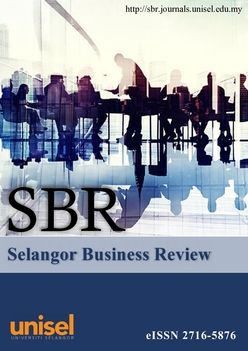Determinants of saving behaviour among university students in Selangor, Malaysia: Mediating role of self-spending control
Abstract
Uncontrolled spending behaviour among younger generations is prevalent especially when they have more freedom in spending that to a certain extent causes them to spend recklessly. This study investigates whether self-control mediates the association linking financial literacy and parental socialisation to saving behaviour among university students. Using a standardised questionnaire, the study utilised a cross-sectional design to collect data from 322 undergraduate students based in Selangor, Malaysia. The SPSS Process Macro Model 4 was used to analyse the mediation impact of self-spending control on saving behaviour. The findings show that financial literacy, parental socialization, and self-spending control are positively associated with the probability of saving money as a regular habit. In addition, the findings reveal that self-spending control has a mediation effect in the association between financial literacy and parents' social influence towards saving behaviour. Understating the factors that affect students' saving behaviour will help higher education institutes (HEIs) to develop adequate strategies for directing students’ mentality and behaviour towards saving. Higher education institutes need to develop the necessary courses and curriculum to inculcate the culture of saving among students at an early age.





 3,026
3,026 2,412
2,412 1,466
1,466